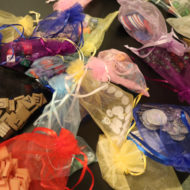Borough of Manhattan Community College (BMCC), Fiterman Hall, 6th floor, 245 Greenwich St
11:00am – 11:45pm: Room F605 (F606 and F612 will be secondary rooms)
We are hoping to play games until midnight, but there is a chance that we will poop out before then. (It is also likely that most or all people will take a dinner break around 8pm). If you are not arriving until after 7pm, you may wish to text the organizer Joe (917-715-5318) to see if people are staying.
All Day Game Jam and Deconstruction
The heart of game-based learning lies in its inspiration: the games we play. Therefore, on the final day of the conference, we will be playing board and card games in a social, bonding atmosphere. We will provide a large selection of board and card games of various complexity levels (mainstream and educational), so even if you’ve never played a game before, you will discover something to suit. You are welcome to bring your own mainstream games, as well as educational games for play testing. (You can also bring your own breakfast, since no food will be served today. BMCC is very close to Whole Foods if you need to take a lunch break or pick up food before you arrive.)
Come practice what you learned in day 1 and 2. There will be a prize for best newly developed game.
Guidelines for Playtests
Time slots: There are no formal time slots for your playtests. On the day of the playtest, one of the CUNY Games Conference Organizers present will figure out when to run your playtest (so introduce yourself to him/her).
Length: Playtesting should take from 30 minutes to 1.5 hours maximum, including all rules teaching and debriefs. Explain to your participants how much time you ideally need, but remember that participants can drop out before the end. (This allows time for participants to see other participant games, be exposed to new games, and talk to others.)
Player Number: Expect 3 to 10 players to be interested in your game.
Goal of the Playtest: Unless your game is very short, this will not be a comprehensive playthrough of your game. Focus on giving your fellow teachers enough of a taste so they can give you feedback on your choices, and also test their own interest in using your game in the classroom.
Game Playtests
Browse the Abstracts for more details on each game playtest.
Going Viral!: An Educational Card Game on Virus Biology
Ruby Gumenick, Vassar College; Desiree Obaji, Long Island University; Robert Frawley, Ashley Pirovano, BioBus
Affixed! A Word Game to Teach Language Learning, Vocabulary, and Spelling (for all levels) Joe Bisz, BMCC



